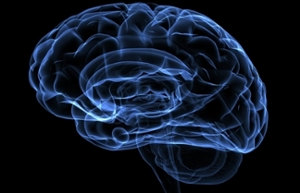
Veterans with Bipolar Disorder and Healthy Controls Brain Imaging Study
This study is no longer recruiting new participants.
What is the Name of the Study?
Brain Bioenergetic Response to Hypoxic Stress in Bipolar Disorder
What is Brain Bioenergetics?
Brain bioenergetics is the study of the way that the brain creates and uses energy.
What Is Hypoxic Stress?
Hypoxic stress is the body’s natural response to breathing air with lower levels of oxygen in it, such as occurs at higher altitudes.
What is Bipolar Disorder and Why Study It?
Bipolar disorder is a psychiatric illness characterized by mood swings from depression to mania. Individuals who have Bipolar Disorder have a suicide rate that is 20 to 30 times higher than that of the general public.
Bipolar Disorder may be a result of alterations in brain bioenergetics, however, we do not yet know enough about this relationship. Given that studies suggest that altitude may affect brain bioenergetics, our research team is investigating how varying levels of oxygen affect brain bioenergetics in Veterans with and without Bipolar Disorder.
What is the Purpose of the Study?
The purpose of this study is to gain an improved understanding of the effects that altitude and varying levels of oxygen have on the brain. At higher altitude (where there is less oxygen in the air), symptoms of bipolar disorder may worsen. We will test this hypothesis, in hopes that our findings will provide a new target for the development of treatments for bipolar disorder.
Who Can Be in the Study?
We are looking for two different groups of participants:
- Healthy Control Participants – i.e., Veterans without a prior or current psychiatric diagnosis, or severe medical conditions
- Bipolar Disorder Participants - i.e., Veterans with Bipolar I Disorder
In order to be in the study, participants must meet these criteria:
- Must be a Veteran of the U.S. Armed Forces
- Must be between the ages of 18-65
- Must be a resident of the Intermountain West for two months or more
- Must not have traveled out of the Intermountain West region for two months prior to study entry
- No air travel within two months of study enrollment or during study participation
- Must not be pregnant or breastfeeding
- Must not have a substance use disorder within three months of study enrollment
- Must be comfortable with having an MRI scan (i.e. do not suffer from claustrophobia or severe back pain, and have no contraindications to an MRI).
What Are the Benefits of Being in the Study?
We cannot promise any benefits to you from being in the study. However, there are some possible benefits to you, such as receiving a thorough medical and psychiatric evaluation, and a copy of the MRI scan of your brain, which will be interpreted by a board-certified radiologist. Other possible indirect benefits, include the fact that results from this study may help doctors understand how altitude affects individuals with Bipolar I Disorder, and improve our understanding of how bipolar disorder affects human brain chemistry. These could help improve treatments for Bipolar I Disorder in the future. However, this would not directly benefit you.
What Do I Have to Do if I Am in the Study?
If you are interested in participating, we will schedule an appointment for you to meet the research staff, and to determine if you are eligible. At this screening visit, you will be evaluated to determine your psychiatric diagnoses including whether you have Bipolar I Disorder, your current mood state, and other information about your health status. Additionally, a physical exam will be performed, a urine sample will be collected, and blood tests will be ordered. If you are eligible, we will schedule another visit for an MRI brain scan.
At the scanning visit, you will fill out questionnaires and have one more blood test to measure the level of a protein in the blood that is sensitive to the decreased availability of oxygen in the air we breathe at higher altitude. Finally, we will perform the MRI brain scan.
Is there Compensation for this Study?
Yes; the study includes compensation for both study visits.
Can I Talk to Someone About the Study?
If you are interested in participating in this study and would like more information, please contact Danielle Boxer, the clinical research coordinator, at (801) 587-1549, or email her at Danielle.Boxer@utah.edu.
